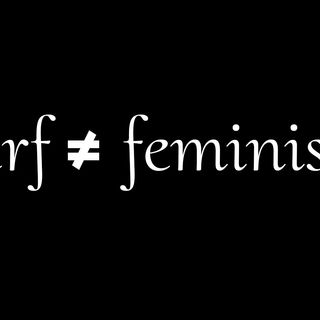
Whitney Cummings Thwarts Blackmailers By Posting Her Own Nudes; What Can the Average Woman Do?
How to confront your blackmailer if you aren’t famous.

U.S. comedian Whitney Cummings posted an Instagram story in April in which she’s eating a litchi in the bath. Unbeknownst to her, the frame also contained part of her breast and nipple. Even though Cummings says she deleted the story after she figured it out, people have been trying to extort her for money by threatening to post screenshots they had taken of her naked body in the IG story. Cummings is not having it.
“They all must think I’m way more famous than I am, but they also must think I’m way more easily intimidated than I am,” Cummings tweeted, attaching the screenshot that showed her nipple to her own tweet. “If anyone is gonna make money or likes off my nipple, it’s gonna be me. So here it all is, you foolish dorks.”
Since she posted the screenshot, support for her (and hatred against the extortionists asking for money) has been pouring into the comedian’s Twitter under the hashtag #IStandWithWhitney. Fellow comedian Bert Kreischer tweeted out a photo of his injured testicles in solidarity. Cummings, by owning her naked body, successfully thwarted those trying to shame her for it. And it worked.
She later tweeted, “When a woman in the public eye is extorted, we have to spend time, money and energy dealing with it, hiring lawyers and security experts, and living with a pit in our stomach about when and how we will be humiliated. Y’all can have my nipple, but not my time or money anymore.”
Cummings successfully amassed leveraged the power of social media to escape the pit she says women in similar circumstances live with — one filled with shame and humiliation. This recourse, however ideal, is not available to most women who face such extortion, often from men they know (called revenge porn).
Related on The Swaddle:
Netflix’s ‘Delhi Crime’ Tackles Rape, But Not Rape Culture
A 2019 report by consumer tech review firm, Comparitech, shows India is one of the worst countries for women when it comes to being protected against cybercrime. To be clear — extorting a woman for money and threatening to shame her for nude photos is a cybercrime. So is photo morphing, in which public images of women’s photos are altered to show them in compromising situations, often sexual, to shame and humiliate them. Often, the taboo around pornography and women’s naked bodies in public (however coveted in private) make photo morphing or revenge porn one of the direst attacks against a woman’s reputation in society — among family and friends, especially. And while reclaiming the narrative and posting the photo yourself — to rid the extortionist of their online weapon — might be the best way to deal with such a thing, the same taboo prevents non-celebrity women from doing so.
The taboo often prevents women from reporting such an incident to the police; when they do report, they’re often shamed for taking such photos of themselves and sending it to others. It’s rhetoric that is common when Indian society talks about women’s safety in public and online spaces; put the onus of being safe on the woman, and rid everybody else of all culpability. In such instances, what recourse does a woman have?
The process of reporting such cases to the police makes it easier. The target of revenge porn or extortion does not have to go to the police in person to report the cybercrime, cyber law expert Pavan Duggal told HuffPost India. In 2018, the Ministry of Home Affairs released an anti-cybercrime scheme that launched an online Central Cybercrime Reporting Portal, to which Indians can report coming across sexually explicit content and child pornography.
Under Section 67 and 67A of the Information Technology Act, police can also book people for circulating ‘obscene’ or ‘lascivious’ content. “If a person publishes or transmits or causes to be published in the electronic form, any material which is lascivious or appeals to the prurient interest or if its effect is such as to tend to deprave and corrupt persons who are likely, having regard to all relevant circumstances, to read, see or hear the matter contained or embodied in it,” Section 67 states. Under Section 67A, “who publishes or transmits images containing a sexually explicit act or conduct” can also be booked. These laws, however, are not specifically targeted toward revenge porn and how the practice unfairly targets women, and can actually be used against them: “Technically, one can argue that if the persons featured in the video or image did not engage in filming those acts, the clip or picture would not have existed. Moreover, if the person had shared it with the perpetrator, that could also be held against him or her,” cyber law expert Pavan Duggal told HuffPost India.
This doesn’t clear the name of the target of revenge porn, as they were complicit in the creation of the content, and perhaps even in its transmission to a certain degree. Police haven’t booked a victim of revenge porn up until now, Duggal told HuffPost India — but the lack of a specific law is a deterrent to women reporting such instances.
Related on The Swaddle:
The Effects of Sexual Harassment on Teens
Still, reporting to law enforcement institutions, however taxing, is one of the best ways for women to seek justice against revenge porn, provided their privacy is protected. In a society where a nude photo can bring more shame upon the woman in it than the creep who shared it, claiming one’s own body on social media seems far away — a worthy ideal to aspire to, but perhaps, not a realistic one yet.
Rajvi Desai is The Swaddle's Culture Editor. After graduating from NYU as a Journalism and Politics major, she covered breaking news and politics in New York City, and dabbled in design and entertainment journalism. Back in the homeland, she's interested in tackling beauty, sports, politics and human rights in her gender-focused writing, while also co-managing The Swaddle Team's podcast, Respectfully Disagree.
Related


Kink 101: Everything You Need to Know About BDSM
